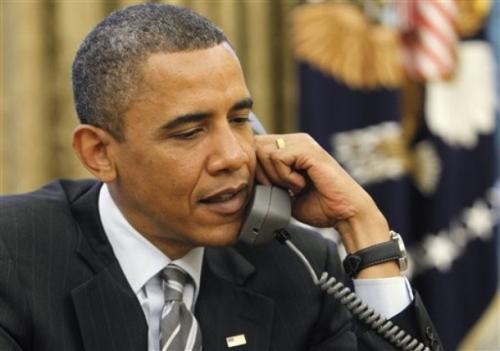In the United States, 9/11 won’t be easily forgotten as the day terror violated our shores. In Britain, on 7/7, English-born Pakistanis stunned Britain by attacking the London Underground. But, in Europe as a whole, 11/11/11 may have larger emotional impact even nearly a century after World War I ended.
On the 11th hour of the 11th day of the 11th month in 1918, an armistice was declared in the Great War between the Central Powers led by the Kaiser’s Germany and the Allied Powers composed principally of England, France and, from April 1917 on, the United States. Tens of millions of soldiers and civilians were killed in what U.S. President Woodrow Wilson predicted was “the war to end all wars.” How wrong he was.
Ironically, the failure of the Versailles Conference in 1919 to establish a just and lasting peace in Europe ultimately fathered World War II two decades later and after Hitler’s Nazis seized power in a defeated and vengeful Germany in 1933. And the first world war that devastated Russia enabled the Bolsheviks to establish the Soviet Union that would last for almost seven decades. Unfortunately, while history may not repeat, it does yield unexpected and not always happy dividends with roots in the past.
Fast forward: Barack Obama won a tight victory over Mitt Romney. The major reason for Romney’s defeat was that his party was so dominated by its right wing that to win the nomination, the former governor moved so far rightward that he couldn’t reverse course in time to impress the American electorate who are, by a large majority, of the center.
In the immediate aftermath of the election, talk of compromise and accommodation filled the airwaves. But don’t believe that will happen for one second.
Almost certainly, the Tea Party and Republican conservative elements will blame the loss on Romney’s shift to the center abandoning right-wing principles and not the real reasons for defeat.
The party will attempt to get both mad and even. In all likelihood, the Republican House of Representatives will grow recalcitrant and America will be in for a rough political ride. Indeed, that the Dow Jones industrial average plummeted more than 300 points on the day after Obama’s victory doesn’t augur well.
What are the relationships then between 11/11/11 and today that warrant attention?
First, no formal international order or framework existed to promote stability and prevent crises then. Instead, secret treaties and agreements caused the reverse to happen despite intermarriages and familial ties between many of the ruling monarchs in Europe. The fatal flaws were in place to make war inevitable.
Second, economic interdependence in Europe led many to conclude war was impossible. Several years before war broke out, the distinguished Nobel laureate Norman Angell argued in “The Great Illusion,” that, because of these economic ties, the cost of war was unaffordable. It was a great thesis. And it was absolutely wrong.
Third, in traveling to Versailles having won a second term in November 1916, Wilson deliberately snubbed the Republicans who controlled the Senate and kept them out of the negotiations. The result was predictable. The Senate wouldn’t approve the Versailles Treaty and America lapsed into an isolationism that only ended after the Japanese attacked Pearl Harbor on Dec. 7, 1941.
Today, many international organizations and bodies exist to promote stability and peace from the United Nations, to the World Bank, International Monetary Fund, Group of 20, NATO and others. But these are creations (or relics) of the Cold War. They must be modernized for the 21st century. Yet no one has proposed the need for this innovation even as cyber, climate change and terror become more threatening.
Second, today’s scale of globalization and economic interdependence far exceeds that of a century ago. A break down or slow down won’t erupt into World War III. Instead, more sinister revolutionary forces are being unleashed particularly in the Middle East and South Asia. The potential geostrategic and political consequences of these harsh economic realities in light of failing government are far from being absorbed.
Finally, as Wilson dismissed the Republican Senate and suffered, both the Democratic-controlled White House and Republican House of Representatives could end up not only snubbing the other. A nasty political and ideologically driven civil war between both ends of Pennsylvania Avenue is not out of the question.
Clearly, 11/11/11 (1918) and 11/11/2012 are worlds and decades apart. The stakes and risks are, thankfully, different. Tens of millions of people won’t die in a world war that never starts. Yet, the world could become far more unpleasant in different ways.
Republicans and Democrats are unlikely to heed this history. That will require the application of two qualities so far lacking: leadership and courage. Mr. Obama please take note.
Harlan Ullman is senior advisor at the Atlantic Council, and chairman of the Killowen Group that advises leaders of government and business. This article was syndicated by UPI.
Image: white%20house%204%2026%2011%20Obama%20phone%20call.jpg
